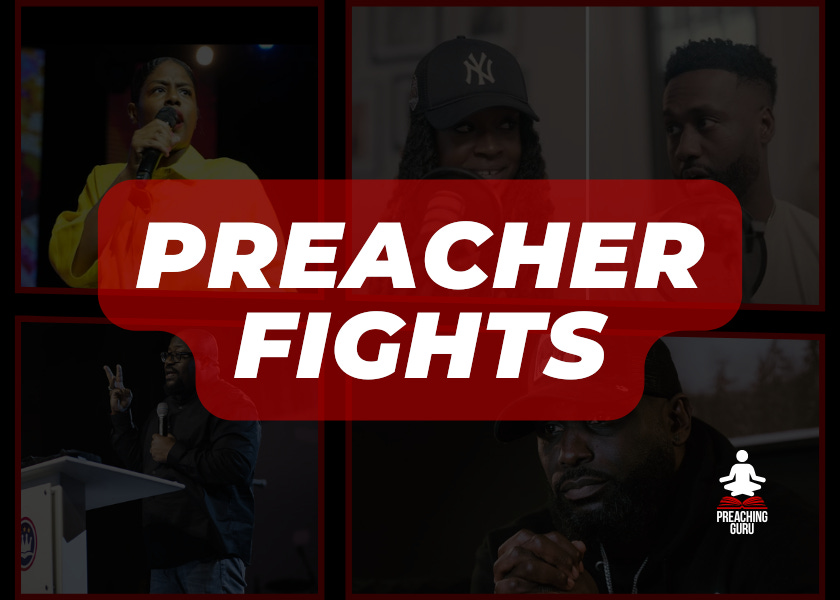In recent days, a public disagreement among several high-profile voices in the Christian community captured attention across social media platforms. A well-known woman in ministry expressed deep pain after being labeled a “witch” and a “false prophet” by fellow ministers. In her response, she defended her call, challenged the accusations, and shared how such words caused personal and spiritual distress.
In turn, one of the ministers offered a video response that reaffirmed his doctrinal concerns and justified the label, referencing his theological position. Another voice entered the fray, adding more fuel to an already smoldering fire, further drawing lines in the sand. Supporters of each party quickly mobilized, reposting, subtweeting, and fueling the discourse.
What started as a disagreement became a digital battlefield. Reels, posts, and captions replaced private conversations and prayerful mediation. Theological discussion gave way to personal attacks. Comment sections turned into war zones. The body of Christ became a public spectacle, not for the gospel, but for a quarrel.
The Cost of Public Conflict
This is not just about a disagreement. This is about influence, responsibility, and how spiritual leaders represent Christ in conflict. When respected voices in ministry attack each other online, it sends ripples far beyond their individual platforms. It leaves the watching church confused, wounded, and often divided.
Young believers who look to these leaders for guidance are left asking: “Is this how spiritual maturity looks?” Skeptics and unbelievers gain fresh reasons to dismiss the church as petty or performative. And those who are genuinely seeking Jesus quietly walk away, disillusioned by what feels more like a power struggle than a pursuit of holiness.
But beyond the hurt and the headlines is something deeper: a lack of trusted, wise, spiritual mentorship.
The Absence of Spiritual Elders
This moment reveals what is missing in much of today’s church culture: elders in the truest sense. Not just older believers, but spiritual guides who can step in and say, “Enough. Let us talk. Let us pray. Let us seek the mind of Christ.”
The problem is not conflict. Scripture is full of it. Peter and Paul, Paul and Barnabas, even Jesus and the religious elite. The problem is how we handle conflict. The early church resolved its disputes through council, humility, and truth spoken in love. Today, we often resolve conflict through posts, pride, and the applause of fans.
We need spiritual mothers and fathers. We need those who will sit with us, challenge us, and remind us who we are before we press "record." We need accountability not just for our actions but for our tone, our timing, and our motives.
From the Heart
If I could sit with each of these leaders, the one who felt attacked, the ones who gave the labels, and the ones who added commentary, I would not start with theology. I would start with tears.
I would ask, “What hurt you?” I would plead, “Let us not do this in front of the sheep.” I would challenge, “Are you trying to win an argument or win your brother?” And most of all, I would remind them that the cross calls us to die to ourselves, even in disagreement.
Because there is a better way. There is a way to speak the truth without tearing down. There is a way to correct without condemning. There is a way to stand on conviction without stepping on people.
Stop the Internet Bullying
To those who follow these leaders: stop reposting pain. Stop celebrating insults dressed up as discernment. Stop participating in spiritual bullying from behind your screens. This is not the fruit of the Spirit. This is not righteousness. This is not Jesus.
Do not let algorithms become your moral compass. Let the Holy Spirit lead you to pray, not pounce.
And to all of us in ministry: do not confuse a platform with spiritual authority. Authority is not proven by how loud you speak, but by how well you love. The church does not need more critics. It needs more peacemakers.
A Vision for the Future
What if this moment could be redeemed? What if the very leaders who clashed came together, off camera, to talk, pray, and listen? What if they returned to the public not with more rebuttals, but with repentance and reconciliation?
That would be a true move of God. That would be a testimony of maturity. That would be something worth watching, not for entertainment, but for encouragement.
As a pastor, I long to see that day. I pray for a church that is known not just for bold preaching but for deep humility. A church where we do not devour one another but disciple one another. A church where mentorship is prized, conflict is handled with care, and grace is the loudest voice in the room.
Until then, I will keep praying. I will keep hoping. And I will keep pointing us back to Jesus, who called us to love one another as He has loved us.
Even when we disagree. Especially when we disagree.
A Call to Accountability, Grace, and Maturity
Keep reading with a 7-day free trial
Subscribe to Preaching Guru to keep reading this post and get 7 days of free access to the full post archives.




